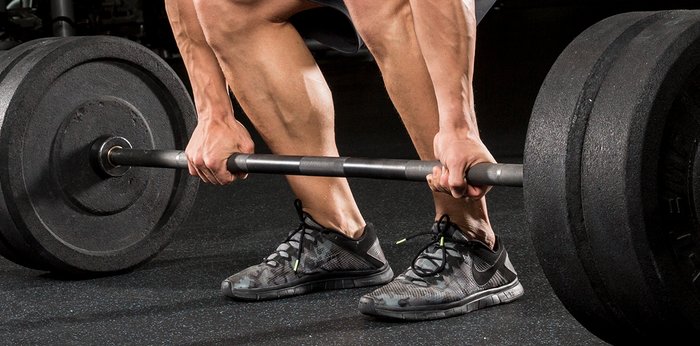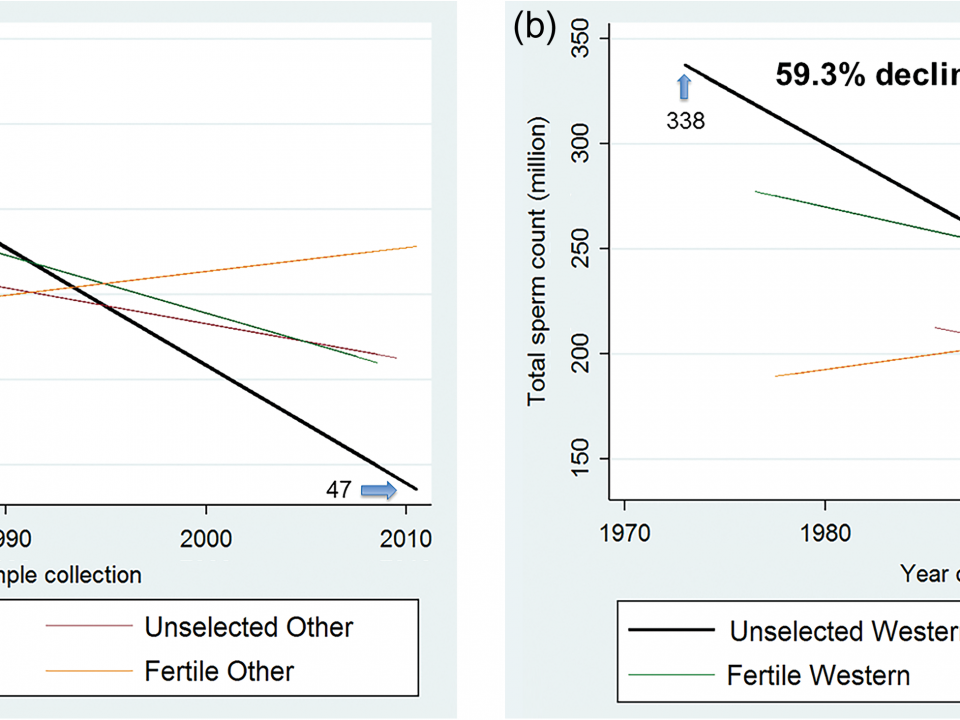Depression has been called the common cold of psychiatric disorders, and at this point, huge numbers of Americans take antidepressant drugs. But there may be a better way, since resistance training treats depression.
Depression is common
Antidepressant drug use is widespread, and 11% of Americans over the age of 12 take one. When broken down by age group and sex, we find that 23% of women in their 40s and 50s take antidepressants. See graph below. (Full discussion here.)

The use of antidepressants could in theory either under- or overestimate the number of people with depression.
But either way, a large number of people, and their doctors, believe they are depressed.
However, a good deal of evidence points to the probability that antidepressants are little more, if at all, than placebos.
They may also have serious side effects.
Is there a better way to treat depression, one with only benefits and no adverse effects?
Resistance training
Resistance training is the catch-all term for strength training or weight lifting. (Since machines or bodyweight can be used, not all cases of resistance training mean lifting weights, as in barbells or dumbbells.)
It’s long been known that exercise treats depression. A recent meta-analysis found that exercise was effective at treating depression, as much as cognitive behavioral therapy. (Ref)
Given the bias in mainstream circles in favor of “aerobic” exercise, it’s reasonable to ask whether resistance training has the same effect on depression.
A meta-analysis recently published in JAMA Psychiatry found that it does, with an effect size similar to other forms of exercise. (Ref.)
Of interest, resistance training improved symptoms of depression “regardless of health status, total prescribed volume of RET, or significant improvements in strength.”
That raises some questions. For example, maybe resistance training acts like a placebo, since any amount in any person seems to work. Indeed, the placebo effect may be at work in other treatments, such as antidepressant drugs (as noted above) or psychological therapy. Professional training in psychotherapy may make little difference in effectiveness, which may indicate a placebo effect. (Ref.)
However, there are reasons to think that resistance training may work by decreasing inflammation. Depression is an inflammatory disease, so reducing inflammation should have a treatment effect. (Decreasing inflammation may be behind the efficacy of antidepressants, that is, the efficacy they may have beyond the placebo effect.)
No studies needed?
Most people who lift weights won’t need any studies to confirm the efficacy of resistance training.
The effect is that obvious.
One trip to the gym for a weightlifting session clears the mind and improves mood. It would seem to follow that frequent sessions could improve mood over the longer term.
Anxiety is closely related to depression. So resistance training, and other forms of exercise, ought to improve anxiety.
Desire to exercise
A common response that I hear when I discuss the fact that exercise can treat depression is that depressed people don’t want to exercise.
While that may be true, it’s an obstacle that must be overcome.
Which comes first, not wanting to exercise, or depression?
Many people defend their weaknesses and illnesses, because that relieves them of personal responsibility. If something is out of your control, it follows that doing something about it is pointless. And they get angry at anyone who suggests otherwise.
Conclusion
Resistance training treats depression with an approximate effect size close to therapy and antidepressants.
Virtually anyone, of any age or health status, can do resistance training. (Some people may require supervision.)
So what are you waiting for?










10 Comments
(Off-topic) (Some things you may find to be of interest)
Laziness kills (men):
“for men retiring one year earlier causes a 6.8% increase in the risk of
premature death and 0.2 years reduction in the age at death, but
has no significant effect for women.”
https://www.nber.org/papers/w25124
Resveratrol increased strength and endurance (dramatically) in mice even without exercise;
improvements also bigger when exercised
“Effects of Resveratrol combined with
Resistant Training on Exercise Performance and
Physiological Adaption”
https://www.mdpi.com/2072-6643/10/10/1360/pdf
Quote from Robert Lustig – The Hacking of the American Mind
“Analysis of eating patterns from the USDA Economic Research Service shows that as income increased from 1960 to 2013, the percent of money spent on food per capita decreased from 17 to 9.6 percent. […]food consumed outside the home has increased from 26 percent in 1970 to 50.1 percent in 20144 […] Furthermore, the lowest-income quintile spends $4,000 per year on food (36 percent), while the highest-income quintile spends $11,000 per year (8 percent). Altogether, the U.S. spends 6.7 percent of its GDP on food.But when you look closely at what we buy, it’s not eggs, meat, or fish; rather, it’s corn, wheat, soy, and sugar—everything that’s subsidized.5 In other words, America buys a whole lot of more pleasurable food for less money than the rest of the world, but in general, with the exceptions of some people on the two coasts, we’re not buying better-quality food.”
1 In 4 Statisticians Say They Were Asked To Commit Scientific Fraud
https://www.acsh.org/news/2018/10/30/1-4-statisticians-say-they-were-asked-commit-scientific-fraud-13554
Exercise: Powerfully lowers cortisol + other stress hormones; how much of exercise’s life/health span advantage is due to that besides physical parameter improvements?
Social Status/wealth are strongly correlated with lower chronic stress (-hormones) and therefore far better health outcomes;
as is meditation (if done correctly, it powerfully suppresses stress hormones)
—> all three measures are independently proven to be highly beneficial – all appear to influence the same single parameter – stress hormone levels
—> is reducing (chronic, baseline) stress hormone levels the single most important underlying beneficial mechanism?
—> evidence suggests that even with zero exercise, and even BMI25+, the people with lowest socio-economic stress/anxiety (upper class) outlive everybody else very significantly –
Mere statistical fluke (few individuals in _true_ upper class) or powerful causation?
Those are all great, thanks, Montgomery.
“Social Status/wealth are strongly correlated with lower chronic stress (-hormones) and therefore far better health outcomes”
“evidence suggests that even with zero exercise, and even BMI25+, the people with lowest socio-economic stress/anxiety (upper class) outlive everybody else very significantly”
“Money doesn’t make you happier.”
Here’s an off topic question for you, sir. You’ve been attacking aging now from every angle it would seem for at least 5 years (if I’m not mistaken). I just turned 40 and have begun following the path you’ve taken on practically every point, as I find your advice invariably to be well-supported, compelling, and motivational.
As I see it, aging is like balding, one of those things that sucks in every way, utterly devoid of any silver lining, and thus something one tends to do everything one can to prevent. In the case of balding, my battle failed. I still look young though and hope I’ll have more success at maintaining my youthful good looks than my hair.
All that said, I’m curious what kind of return on investment one might expect from your recommendations, many of which are relatively novel (and that’s leaving aside potential synergistic benefits of doing them all together). More concretely, if an objective observer saw you 5 years ago, and again today, apart from your muscle gain, would he have reason to be surprised, eg would he compliment you on not having aged? Granted it’s a difficult and perhaps poor question, not least because it’s a sample of one, but I don’t want to have unjustifiably high expectations going forward. And perhaps if someone other than you has adopted your strategies (for 5 years or so, enough time for people over 40 to start showing their age) I’d be curious how their results compare to yours thus far.
Hi Paul, and thanks. In one of my articles, I discussed some of these issues: life expectancy may be more than you think. One thing I emphasized in my anti-aging course is that a few, very simple lifestyle practices will get the average person to age 90, and it’s after that that the real anti-aging practices kick in. The thing is, we just don’t know to what age a person who practices them will live. Barring unforeseen circumstances, I believe I can get to 100 without much problem. Scientists think 115 is around the upper limit for humans.
I’m not sure I would get complimented on not having aged. I can see the difference in photos taken 5-7 years ago. However, people do remark that I look relatively young. Probably a lot of that is being lean and muscular; it’s amazing how much younger that makes one look. I’ve got the body of a 20 year old, in appearance anyway.
Dennis, do you have any views on the benefits of eating raw meat? There seems to be a movement and trend towards raw, and even fermented (i.e. controlled rotting), meat. I could see that certain nutrients are compromised by cooking, and that the killing of natural bacteria and other “pathogens” could be beneficial. But I also get a decidedly non-scientific / cult-ish vibe from many of the people pursuing the raw and fermented meat diet.
Hi Daniel, I can’t think of any benefits to raw meat. There’s a reason it’s almost always eaten cooked, which is that its nutrients are more readily absorbed. Also the issue that you mention, killing pathogens, although I suspect that’s mostly a modern (post-paleo) concern. Some animals in the wild do have pathogens that can be transmitted to humans; tularemia is one, squirrel and rabbit hunters being among the people who get it.
I’m not familiar with whatever logic the raw meat people are using but it’s important to note that cooking anything, especially fats, at high temperatures is likely quite bad, however that’s not a a good argument for not cooking at all. High-heat cooking AFAIK is apparently part of why India has developed such diabesity problems.
Meant to say the killing of naturally occurring bacteria and other “pathogens” would _not_ be beneficial. If we evolved to have symbiotic relationships with the various naturally occuring pathogens, destroying them in our food sources would not be optimal.
Many thanks for your response, Dennis.